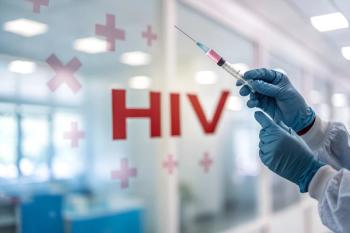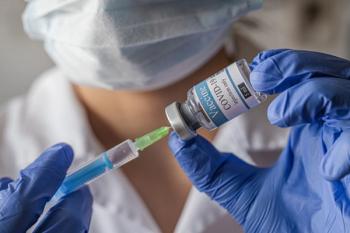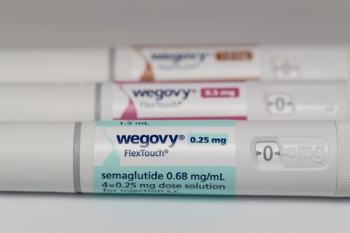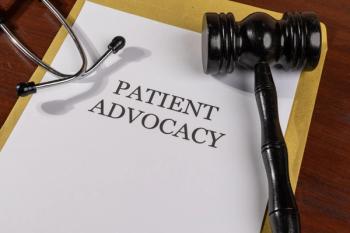
The panel discussion features pharmacy leaders, policy experts, and well-known legal minds discussing the Most Favored Nation drug policy and its overarching implications.

The panel discussion features pharmacy leaders, policy experts, and well-known legal minds discussing the Most Favored Nation drug policy and its overarching implications.

Due to an increased risk of vaccine-preventable diseases, researchers explore pneumococcal, COVID-19, and influenza vaccine coverage among people living with HIV in Belgium.

As part of the guidance, the FDA emphasizes drug development, specifically with trial design, patient populations, and outcomes such as reducing the need for opioids.

As the 2025-2026 respiratory season approaches, the CDC’s Advisory Committee on Immunization Practices has not met and voted on guidelines for COVID-19 vaccines.

Researchers conduct a proof-of-concept study exploring the feasibility of health information technology interoperability between a medical office and independent pharmacies.

Andrea Sikora, PharmD, MSCR, FCCM, FCCP, BCCCP, led a 21-member panel on critical care pharmacists and joined us to discuss how guideline updates may impact the greater pharmacy industry.

In hospitalized patients with obesity, researchers conduct a study detailing how electronic clinical support helps participants optimize their treatment regimens.

Along with additional bills to further bolster PBM reform, the organizations are aiming to pass the PBM Reform Act for improved medication costs and community pharmacy sustainability.

Andrea Sikora, PharmD, MSCR, FCCM, FCCP, BCCCP, chair of the committee presenting new guidelines, discussed her role in bolstering pharmacists’ support in the ICU.

Among individuals with both diabetes and HIV, researchers determine patients’ adherence to comprehensive diabetes care interventions.

The Medicare Drug Price Negotiation Program is anticipated to cause multiple issues for pharmacy owners and their cashflow sustainability.

Olezarsen significantly reduces triglycerides and acute pancreatitis events, offering new hope for patients with severe hypertriglyceridemia.

Medtronic’s diabetes management technology reached 2 milestones upon FDA approval, allowing integration of continuous glucose monitoring for patients with type 1 and type 2 diabetes.

Exploring the influences of pneumococcal disease mortality and events of the COVID-19 pandemic, researchers investigate changes in US pneumococcus survival rates since 2020.

In pharmacies in predominantly Black and Latino neighborhoods, only 18% and 17% were likely to carry buprenorphine compared with White neighborhoods.

Orforglipron shows results in weight loss and diabetes management, offering a new oral treatment option for patients.

With hypertension commonly leading to increased risk of mortality, researchers aimed to understand the hypertensive survival rates of patients with diabetes over a 20-year period.

CVS will not offer COVID-19 vaccines in Massachusetts, Nevada, and New Mexico.

A real-world study found that semaglutide significantly reduced the risk of major cardiovascular events compared to tirzepatide.

Using results from the Rx for Change program in Pittsburgh, Pennsylvania, researchers explored an integrative approach to cardiometabolic disease management among Black patients.

The FDA approves denosumab-nxxp (Bildyos and Bilprevda), enhancing access to vital bone health treatments for osteoporosis and cancer-related conditions.

Detailing the public health impact of an Rx-to-OTC switch, researchers explored the reclassification of triptan medications in Germany.

Pharmacists advance equity by personalizing care and addressing health literacy to meet patients where they are.

FDA approves Leqembi's subcutaneous formulation, enhancing accessibility for Alzheimer treatment and paving the way for future combination therapies.

From the perspective of someone directly impacted by PBM practices, Bil Schmidtknecht shares his insights into the ways PBMs affect patients’ access to medications.

Pharmacists navigate complex immunization challenges and address parental concerns and misinformation while advocating for streamlined vaccine access and adherence to evolving guidelines.

Researchers explored the association of body mass index and all-cause mortality rates among older adults undergoing major elective surgery.

Childhood immunization guidance in the US faces confusion as the AAP and CDC diverge on COVID-19 vaccine recommendations, impacting parents and providers.

Pharmacists are uniquely positioned to close health literacy gaps through clear communication and intentional patient education.

Bil Schmidtknecht joined Drug Topics to share his son’s tragic story and how it motivated him to join the greater fight in putting the lives of patients at the forefront of health care.